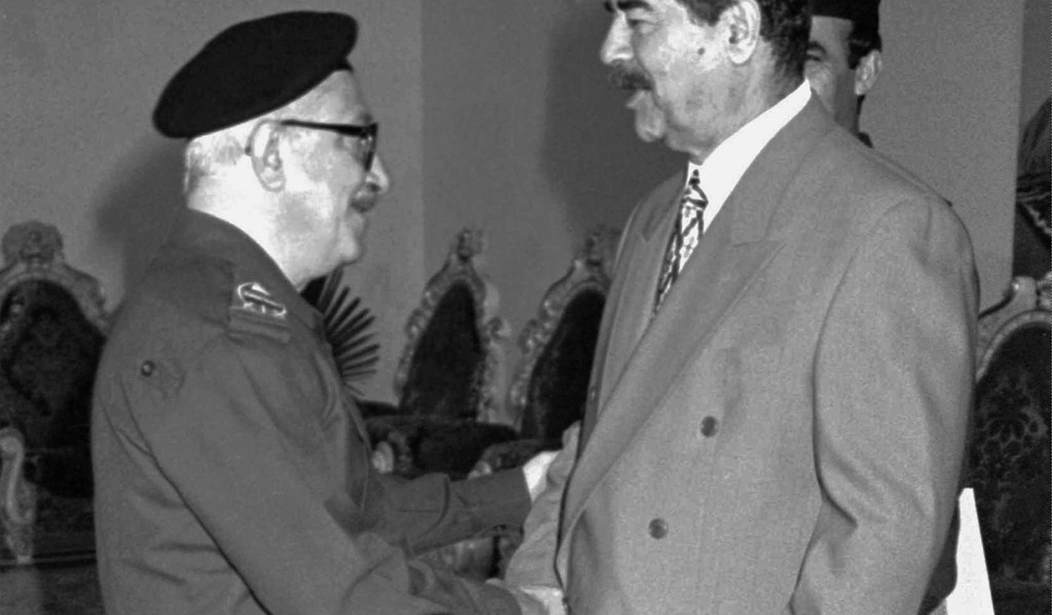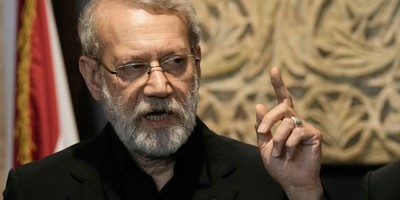Twenty-five years have passed since Aug. 2, 1990, the day Saddam Hussein's forces invaded Kuwait.
Saddam stunned the world. Oil prices skyrocketed, economies rich and poor reeled. The headlines and commentariat fret were fearful, the excuses tendered by Saddam's apologists intellectually boggling and morally bankrupt.
Saddam expected U.S. and Saudi opposition, but suddenly he faced more opponents than he ever imagined. In the following weeks, President George H. W. Bush and his administration created a militarily effective and politically resilient coalition that would include 34 nations. Bush would later call it an "uncommon coalition" and regard its formation as a major success.
Indeed it was. Bush's Kuwait War coalition was the practical product of truly intelligent and diligent diplomacy working in harmony with the other elements of U.S. power. Forging it required coordinating leadership, which he provided.
The military frenzy in the days following the invasion overshadowed U.S. diplomacy. In the Persian Gulf the U.S. Navy prepared for action. Saudi Arabia requested aid. U.S. Air Force jets and Army paratroopers reached Saudi Arabia on August 7.
In fact, within 24 hours of the Iraqi invasion, President Bush was developing a comprehensive plan of action, which National Security Directive 45 (signed on August 20) formalized. Now declassified, it is available on the Web.
NSD 45 made complementary or synergistic use of the classic elements of state power: diplomatic, information/intelligence, military and economic power. The acronym is DIME; the concept is anything but small change.
For example, the U.S. used diplomatic operations to support the initially weak U.S. troop deployment. The U.S. secured three U.N. resolutions that condemned the invasion and imposed economic sanctions. Resolution 660 passed on August 2. Defending Kuwait was a collective, global effort.
Recommended
Bush immediately employed what one commentator dubbed "telephone diplomacy. " As a former vice president, U.N. ambassador and CIA director, Bush had personal acquaintance with leaders worldwide. His calls clarified U.S. intentions; practicing superior diplomacy, he sought advice and opinion.
NSD 45 linked diplomatic, military, economic and information operations. The U.S. had definite goals, promoted collective action but would use force. U.S. Persian Gulf area interests were "vital" and we would defend them against "any power with interests inimical to our own." America supported the "individual and collective self-defense of friendly countries" and encouraged "effective expressions of support and participation of our allies and other friendly states" to promote mutual interests in the region.
NSD 45 made "immediate, complete, and unconditional withdrawal of all Iraqi forces from Kuwait," and the "restoration of Kuwait's legitimate government" core objectives. Two military forces would be created to help secure them. Multinational Force for Saudi Arabia (MNFSA) would deter further Iraqi attacks. Multinational Force to Enforce Sanctions (MNFES) would enforce sanctions to compel Iraqi withdrawal from Kuwait and "to restore Kuwait's sovereignty, independence and territorial integrity."
NSD 45 would attempt to use coercive diplomacy to evict Iraq from Kuwait. If that failed, diplomacy would have secured sufficient political support to permit offensive operations by MNFES.
The U.N. resolutions were coercive diplomatic tools. The assembling coalition was as well. Coercive U.S. diplomats used it as an information weapon. It told Saddam he was alone. Britain, France, Pakistan and Morocco sent contingents to join Saudi, U.S. and remnant Kuwaiti forces. Egyptian and Syrian mechanized units arrived. Troops from 25 more nations deployed. Japan and Germany kicked in money. The USSR, led by Mikhail Gorbachev, agreed to stay on the diplomatic and military sidelines.
Security Council Resolution 678 (November 1990) gave Saddam an ultimatum: Withdraw by Jan. 15, 1991 or face attack.
Alas, he didn't. In 1999, George H. W. Bush told a group of veterans that WWII had taught the lesson that you cannot appease an aggressor. "Had we relied totally on sanctions (to force Iraq from Kuwait) ... then we would have sent a signal of weakness to other would-be aggressors around the world."
On Jan. 17, 1991 the military element of power took precedence over the economic, information and diplomatic elements. And Desert Storm began.

























Join the conversation as a VIP Member